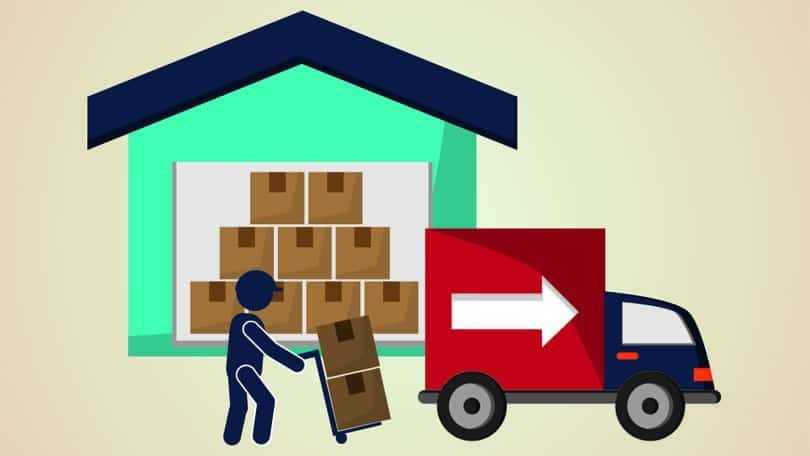Most of you love shopping: not just the act of buying products but also the act of window shopping or just browsing around for things in a store. Malls and other shopping centres try to squeeze as much money out of you as they can by playing around with your psyche. Remember how excited you got when you saw the banner advertising a 50% discount or a coupon for every purchase above 200 pounds?
Although most of you don’t realise it, you can save hundreds of pounds every month or year by adopting smarter shopping habits. Shopping can be addictive, especially if you have availed for options like 0% loans. With a few lifestyle changes and the tips mentioned in this blog, you can still enjoy a fantastic shopping experience while also cutting back on wasteful spending.
6 Shopping Strategies That Help You Save Money
There is no compromise for daily necessities like food and shelter, but for most other purchases that you do occasionally or regularly, there are some alternatives you can try out.
1. Do You Need to Buy What You Are Looking For?
The important word in the above sentence is “buy” because, for many things that you need, you don’t have to spend money to purchase it. There are plenty of buy-and-sell groups on social media platforms where you can find renters for products.
If it something you require temporarily – like a dinner jacket for a date but never again – try to borrow it from a friend or neighbour. Unless you want a full bookshelf to boost the aesthetics of your house, sign up for a library membership and borrow books instead. In general, keep the option of going to a shop as a last resort.

2. Make a Shopping List
If you decide you have to go to a store, always make a shopping list before you leave your house. A list helps you in a couple of ways: one, you remind yourself of everything you need so that you don’t forget anything critical. The other way is that if you force yourself to buy only those are on the list, you restrict yourself from impulse buying, even if it just an extra packet of cookies.
Your list can also mention which product you want to buy at which shop, due to some differentiating factors like coupons, discounts, or memberships. Whether it worth going to different shops to get products instead of buying them all in one place is a decision that you have to make.
3. Look for Discounts and Coupons
Discounts can be of numerous types: discounts for regular customers, for a particular kind of credit card, at a specific time of the day or month, or for other reasons. Coupons include the ones you get in the newspaper or the form of gift vouchers. Some other shops or online sites offer cashback options or reward points.
Before shopping, verify if these offers apply to you or the thing that you are going to buy. In case of reward points or a cashback option, find out how long it will take before it is processed.
However, a word of caution: you should curb your urge to buy something just because there is a discount associated with it. If possible, try to convert the discount into something else useable or make a deal with a friend to use your discount.
4. Limit Your Credit Card Usage
A credit card is a powerful tool as well as a dangerous trap. It is convenient in case of emergencies or sudden necessary purchases like medicines, but at other times, it can lure you into spending a fortune on things you don’t need. Planning your purchases helps you minimise the use of credit cards only for necessary expenses for which you don’t have the cash in hand.
The other risk with excessive usage of credit cards is that if you are unable to repay the credit to the card company, your credit score is affected. In that case, it could affect your future usages of the card or borrowing money in general. Before you use your card for a planned expensive purchase, check out the Experian credit score range in the UK to see how good your credit score is.
5. Use Comparisons Wisely

Comparing prices and shops is something worth spending time on, mainly when the prices are on the higher side. Different shops or brands have pros and cons, so you should read up about all the options you have before zeroing in on one product.
Reading product reviews gives you many insights into users who have had first-hand experience with what you plan to buy. You often find quite a bit of hidden information in customer feedback that the websites don’t explain, good and bad. Remember, once you decide to buy something, there is no use regretting the purchase, so make all your comparisons before you take out your wallet.
6. Retain Your Bills and Receipts
Whatever you buy, make it a habit to save the bill or whatever proof of purchase you have. In case the product is faulty, the receipt is all you have to ask for a refund or an exchange. Using bills to get an alternative product is typical with products where what you take home is not what you see or try out at the store, like garments.
Not all stores accept users returning the products, but there is no harm in trying; you can check with the store about this. If they do not encourage this, it gives you another chance to think if you really need what you are buying.
Shopping Without Splurging
These steps will help you keep better track of your shopping and ensure you spend only the required amount for things you need. An occasional expensive lunch with a friend or a trip to the theatre is okay, but it should not become a habit.
All it takes is for you to think twice or thrice before every purchase you make, and you will quickly understand how many needless things you have bought. You don’t have to go out of your way or make any significant lifestyle changes for this either.


